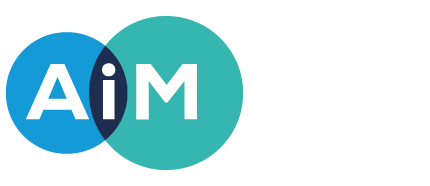Stay in touch with the latest news from AIM and get information on sector grants, jobs and events with our free fortnightly E-News.
What will your future strategy be?
Six months ago, everything changed fast. Coming back is proving to be slow and unsure. Each museum is having a unique experience depending on your size, location, physical space, digital capacity, governance, stability and strength prior to this situation, and your culture.
Most of the parameters you use to plan are unstable at best. But like every change/crisis there are upsides as well as downsides. There are opportunities, but perhaps flexibility rather than resilience is what is needed to capitalise on them. Now is the time to think about the changes needed to create your future; admittedly a hard thing to do when you are managing the new issues of the present with fewer staff, dwindling funds and a foggy outlook.
One surety is that no-one knows when Covid 19 will stop affecting your organisational and your business model has been rocked. So how will you develop your strategy for the future. Here are some pointers although this is unlikely to be a linear process.
1. Make time and space
For many of you the problems of today and tomorrow will be front of mind as well as keeping abreast of changes to your landscape. Its imperative that you clear some space for this. Change takes time. So, push tactical decisions to the right level, do not do anything that someone else could do and make space to think strategically. Clear space in a diary (head) is something every leader needs just now.
2. Gather multiple perspectives
In order to create your future, you need to listen to and hear from different voices. The people who are good at managing in regular times may not be suited to this landscape. You need to hear from those who think differently, who are from different levels, who are flexible, are prepared to bring up uncomfortable thoughts/ideas in the best interest of the organisation. Who knows what is going on in your region/community? Who knows what is happening outside of the sector? What new needs are arising?
Don’t just pick the usual suspects. Talk to stakeholders in the widest sense. New perspectives open up possibilities and they often come from unexpected sources. Be ready to listen.
3. Ask different questions
Often, we narrow a problem to tackle; a good approach in any instances. But at the moment its time to open up possibilities, expand thinking and create a wider set of options to explore. What if you shifted one of your core assumptions on an issue? What might you be explaining away too quickly?
4. Discover your assets
Outdoor space has stormed to the top of your asset list. And suddenly the shop has dropped down the chart. Looking at your assets as part of a bigger system and from more perspectives will suggest new possibilities. Are there new opportunities for your spaces? Weddings are small intimate affairs now – is that an opportunity for small interesting spaces? Community connectivity has been a real strength in the past 6 months; what opportunities does that offer in terms of social cohesion, well-being, collaboration. What connections have you not explored? Is it time to relook at how you tell your stories to increase relevance, broaden the context? Are there new stories or angles? What about staff skills?
Are there assets that you could create or are now more valuable than they were?
5. Define your opportunities
This is a standard exercise of evaluating the potential of your ideas. The inputs and outlays. Perhaps you have one half of the solution and a partner can make it whole. At this stage you are working out what is viable, in what time scale, and what is the potential upside whether economic, social, or psychological (e.g. staff benefits). You will be testing assumptions and probably entering new territory as you start to prioritise and select the opportunities that will make your future and fit with who and what you are as an organisation.
And from this your new strategy begins to emerge.
It’s April 2021 – ask yourself what you wish you had done 6 months ago?
Louise Emerson is a business consultant and accredited Executive Coach and Mentor. In the December issue of the Bulletin she will look at income generation. Visit Louise’s website, Take the Current>>
